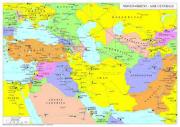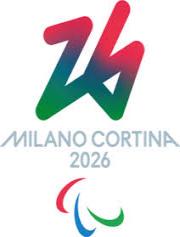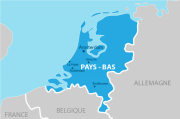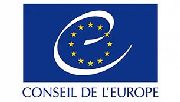Briefs
Court of Justice
Air freight cartel: appeals by 12 airlines rejected
2 March 2026

On 26 February, the Court of Justice ruled on appeals by several airlines against fines imposed by the European Commission for participating in an air freight cartel. According to the Court, the airlines agreed to apply abusive tariffs, supposedly to compensate for fuel price fluctuations in order to increase their revenues, while refusing to pay commissions to freight forwarders, practices deemed contrary to competition rules. Only the appeal by SAS Cargo Group was partially upheld, due to errors in the calculation of its fine by the Court. For the other companies, the Court confirmed the fines imposed by the Commission, amounting to approximately €775 million.
Diplomacy
Signing of agreements with Switzerland
2 March 2026

On 2 March, Swiss President Guy Parmelin and European Commission President Ursula von der Leyen signed bilateral agreements between Switzerland and the European Union in Brussels covering the following areas: air transport, land transport, free movement of persons and conformity assessment; trade in agricultural products; food safety, health and electricity; Switzerland's permanent and equitable financial contribution to the economic and social cohesion of the Union; agreement allowing Switzerland to participate in several Union programmes: Switzerland's participation in the European Space Agency.
Elections
Parliamentary elections in Denmark on 24 March
2 March 2026

Danish Prime Minister Mette Frederiksen has called an early general election in Denmark on 24 March, partly in response to pressure from Donald Trump over Greenland. The political landscape is crystallising around the ruling Social Democratic Party. At the head of a centrist coalition with the Liberals and Moderates since 2022, the Social Democratic leader is seeking a third term. The question is whether she will succeed and with which other parties she will be able to form a coalition.
Foundation
European Women leading the Way
2 March 2026

The Robert Schuman Foundation launched the 'European Women leading the Way' project to highlight the decisive role played by women in the construction and influence of the European Union. This publication presents 27 portraits of influential European women, each representing a Member State, illustrating the diversity of their backgrounds and areas of expertise. It highlights the contribution of women to the construction of the Union and demonstrates that Europe is a place where there are no barriers to women's success.
Monitoring of the recovery plan
2 March 2026

On 2 March, the European Commission approved Slovenia's fifth payment request under NextGenerationEU, amounting to €266.8 million. All NextGenerationEU disbursements can be found on the Foundation's website.
Front page!
The choice of war
2 March 2026

On 28 February, against a backdrop of growing tensions over Iran's nuclear programme and following the regime's bloody crackdown on popular uprisings, the United States and Israel made 'the choice of war' by launching a series of coordinated strikes against military and strategic targets. Faced with this new phase of escalation in the Middle East, Europe is prioritising law and diplomacy, faithful to the democratic values on which it is founded, and is committed to preserving peace, the price of which it knows only too well after so many conflicts.
Germany
German Chancellor visits China
2 March 2026

On 25 February, German Chancellor Friedrich Merz met with Chinese President Xi Jinping and Premier Li Qiang in Beijing to strengthen the strategic partnership between the two countries and discuss economic cooperation. The Chancellor emphasised the need to establish fair competition and a market based on common rules, while reiterating his commitment to cooperation, as evidenced by China's announcement of an order for 120 Airbus aircraft, which is likely to support the European aerospace industry. Finally, they took advantage of this visit to discuss international issues, with a view to ensuring regional stability in Asia and promoting global security.
Iceland
Towards a referendum on EU membership?
2 March 2026

On 25 February, during a visit to Poland, Icelandic Prime Minister Kristrún Frostadóttir announced that a referendum on Iceland's accession to the EU would be held in the coming months. Initially planned for 2027, this project is now being fast-tracked due to current geopolitical tensions. Iceland had already begun the accession process in 2009, with official negotiations opening in 2010, but these were suspended in 2013 and Iceland officially requested the withdrawal of its application in 2015. The date has yet to be confirmed.
Sport
Opening of the Winter Paralympic Games
2 March 2026

The Winter Paralympic Games are being held in Milano-Cortina from 6 to 15 March. For this 50th anniversary, this event will bring together nearly 650 athletes in 78 events, providing a global showcase for Paralympic sport and adapted sporting excellence, promoting inclusion and pushing boundaries.
Studies/Reports
Evaluation of the European Innovation Partnership in agriculture
2 March 2026

On 26 February, the European Court of Auditors published an evaluation report on the European Innovation Partnership for agricultural productivity and sustainability. It highlights that this instrument remains under-utilised despite an investment of nearly €1 billion. The audit reveals that only 25% of the projects examined generated concrete innovative solutions, while nearly a third had no direct link to agricultural practices. To remedy these shortcomings, the Court recommends refocusing funding on the real needs of farmers. Finally, it calls for the systematic dissemination of results, which is currently lacking for half of the projects, so that these innovations can bring lasting benefits to the entire European sector.
The Netherlands
New government led by Rob Jetten
2 March 2026

On 23 February, the new government of Dutch Prime Minister Rob Jetten was sworn in before King Willem-Alexander. This government, comprising a coalition of Democrats 66 (D66), the People's Party for Freedom and Democracy (VVD) and the Christian Democratic Alliance (CDA), marks a new political phase. The Prime Minister, the youngest in Dutch history, will work with 17 ministers and 10 Secretaries of State.
Ukraine
The Council of Europe calls for a just and lasting peace
2 March 2026

On 24 February, on the fourth anniversary of Russia's invasion of Ukraine, the Council of Europe, through its Secretary General, Alain Berset, reiterated its support for Ukraine and its people, stressing that lasting peace can only be viable if it is fair and based on law. All Council structures have been mobilised to support reconstruction, ensure accountability for war crimes and enable refugees and victims to file claims for compensation. The Secretary General stressed the importance of a strong European commitment to establishing a Special Tribunal for the crime of aggression and opening an International Claims Commission.
Visit by the Croatian Prime Minister
2 March 2026

On 24 February, Croatian Prime Minister Andrej Plenković attended the commemoration of the fourth anniversary of the Russian invasion in Kyiv. He emphasised Croatia's commitment to Ukraine's European integration and reiterated Croatia's support for Ukraine, particularly in the field of energy, through the new bilateral aid programme adopted by the Croatian government specifically for the reconstruction of the energy sector.
